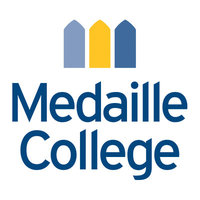Note: This post originally appeared in The Seattle Times website 7/11/2010 by writer Nick Anderson. To see the original post, go here.
Gates Foundation puts its stamp on
education
Across the country, public education is in the midst of a quiet revolution.
Across the country, public education is in the midst of a quiet revolution. States are embracing voluntary national standards for English and math, while schools are paying teachers based on student performance.
It’s an agenda propelled, in part, by a flood of money from a Seattle billionaire prep-school graduate best known for his software empire: Bill Gates.
In the past 2 1/2 years, the Bill & Melinda Gates Foundation has pledged more than $650 million to schools, public agencies and other groups that buy into its main education priorities.
The largest awards are powering experiments in teacher evaluation and performance pay.
The Pittsburgh, Pa., school district landed $40 million; Los Angeles charter schools, $60 million; and Memphis, Tenn., schools, $90 million.
The Hillsborough County district, which includes Tampa, won the biggest grant: $100 million. That has set the nation’s eighth-largest school system on a quest to reshape its 15,000-member teaching corps by rewarding student achievement instead of seniority.
Shift in strategy
The focus on teaching marks a significant shift for the foundation. In the past decade, it spent $2 billion to improve high schools, with a major emphasis on creating smaller schools.
But Bill Gates said Saturday that new approaches are needed because the pace of improvement has been too slow. In many cities, a third or more of students fail to graduate from high school on time. Those who earn a diploma are often ill equipped for college.
“It’s disappointing to everyone who looks at the facts,” Gates told The Washington Post in a telephone interview. He said he is willing to do whatever it takes to help raise achievement. “There’s a risk that we might not succeed,” Gates said, “but I can tell you we’ll keep trying.”
It is unclear whether philanthropy — even a charity led by one of the world’s richest men — can find large-scale solutions to problems that have beset schools for generations. But what is certain is that Gates grants have become a leading currency for a particular kind of education change.
That agenda has won praise from the Obama administration and others, while prompting questions from some about the foundation’s pervasive presence and its emphasis on performance measures.
Ambitions
Data the foundation provided to The Post show the most comprehensive portrait of its educational ambitions over the past two years.
Since January 2008, more than 250 Gates grants have targeted causes such as charter schools, testing research, data systems, science and math education and common academic standards.
Overall government spending on K-12 education, estimated at more than $500 billion a year, dwarfs what the foundation gives. But the Seattle-based charity, with a $35 billion endowment, towers over others in the field.
It gives nearly four times as much annually to elementary and secondary education as the second-biggest player, the Walton Family Foundation.
“It has influence everywhere,” said Tom Loveless, an education analyst at the Brookings Institution, “in absolutely every branch of education, whether you’re talking about the federal, state or local levels of government, schools, the press, politicians or think tanks. Their motives could be 100 percent pure. But any time you have one big player that is influencing all of these groups, it is cause for concern.”
The Gates Foundation is perhaps best known for its work overseas fighting malaria and HIV/AIDS. Domestically, foundation officials depict the charity as one player among many in a broad coalition to improve teaching and prepare more students for college.
“There’s definitely a convergence of ideas,” said Vicki Phillips, who oversees the foundation’s elementary- and secondary-education grants, “not just between us and the administration but between us and many other reform-minded people who have been working on these issues for a long time.”
(Melinda Gates, wife of the Microsoft chairman, and investor Warren Buffett, a major donor to the foundation, are both on The Washington Post Co. board of directors.)
Education Secretary Arne Duncan, who has recruited some key aides from the charity, described the foundation as “one of many stakeholders really interested in seeing things get better. I appreciate their commitment and stick-to-itiveness. They’re in this for the long haul.”
The foundation is a go-to funder for education groups inside the Capital Beltway and beyond. Its projects align so closely with President Obama’s agenda that critics say it resembles an arm of the government, which Gates and Duncan strongly dispute.
The foundation gave 25 states and the District of Columbia about $6 million to help them apply for Obama’s Race to the Top school-overhaul grants.
It also has awarded more than $35 million since January 2008 to the Council of Chief State School Officers, the National Governors Association Center for Best Practices and other organizations that are developing and promoting common standards.
Obama praises the state-led standards movement but can’t fund it directly without risking a backlash against federal involvement in local schooling. The foundation has stepped into the void, becoming the movement’s top funder.
As a result, students in many states soon will share for the first time common expectations for what they should learn from grade to grade. The initiative has put voluntary national standards, long considered a political impossibility, on the verge of becoming a reality.
Skeptics say the Microsoft co-founder is foisting a business-driven agenda on schools without understanding the challenges of public education. “I suspect that eight years from now, the Gates Foundation will say, ‘Whoops, we made another big boo-boo. What should we do now?’ ” education historian Diane Ravitch said.
Gates acknowledged he is no expert but said: “I’m a very good student. I’m learning a lot.” He said he is intrigued by the intricacies of education budgets and why mayors control some school systems but not others.
Education professionals lead the foundation’s efforts. Phillips, in her post since 2007, was previously Pennsylvania’s education secretary and school superintendent in Portland. John Deasy, Phillips’ deputy, was recently named deputy chief of Los Angeles schools.
Unions wooed
The foundation also is wooing teachers unions as never before. It gave $1.6 million to charitable arms of the National Education Association and the American Federation of Teachers (AFT) and has sought in the past year to invest in school systems with good labor relations.
It commissioned one of the broadest surveys ever of teachers to get their views, and it is gathering footage from classrooms across the country to study what makes effective teaching.
Saturday, Gates addressed an AFT convention in Seattle. Such overtures have surprised labor leaders who haven’t considered him an ally. But the rationale was obvious: To make changes at the heart of public schools, foundation officials wanted teacher buy-in. That quest led them to Florida.
The Hillsborough system, with 193,000 students, emerged last year as the foundation sifted thousands of candidates for a project nicknamed the “deep dive.” Crucially, the Hillsborough Classroom Teachers Association already had accepted the idea of bonuses linked to test scores and other metrics.
Over seven years, the $100 million grant will fund staff development, testing, salary and other startup costs for a career path that aims to elevate teachers who excel and encourage those who flounder to get help.
Every year, teachers here will be evaluated on a formula based on student achievement gains (40 percent), principal observation (30 percent) and peer observation (30 percent).
By 2013, a four-tier pay scale will take effect that will reward high performers regardless of academic degrees or years of experience — a major break from precedent.
Veteran teachers will be allowed to remain in the seniority-based pay scale or opt into the new one. New teachers will not have a choice and will be subject to more rigorous scrutiny before gaining tenure.
Many teachers remain wary of linking test scores to paychecks. But Gates and the school district have won converts.
Miriam Everett, a veteran math-science teacher at Kimbell Elementary School in Tampa, was delighted last spring when Florida’s governor vetoed a bill to weaken tenure protections and expand merit pay.
Yet Everett enlisted in the Hillsborough project to help evaluate other teachers. “They really are working with teachers,” Everett said, “making sure we’re comfortable with it and we have our say.”

Filed under: Education






